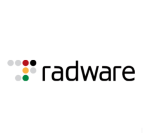What is our primary use case?
We use this solution to protect our websites and services.
How has it helped my organization?
The solution prevented several attacks, such as Log4j two years ago when it emerged as a major vulnerability.
Cloudflare Web Application Firewall released protective rules a few hours after we discovered the potential problem and provided protection.
What is most valuable?
The firewall has rate-limiting, managed, and custom firewall rules.
Some of the features we’re using to a limited extent because they require an extra subscription. We have just the basic one. For example, advanced rate-limiting features are available, but we only use basic rate-limiting.
We mainly use custom and managed firewall rules, which work well for us. We also use DDoS protection, which is probably one of the main features of the Cloudflare solution. DDoS protection was the initial thing we signed up for Cloudflare to protect our exposed web services and sites.
We also use Cloudflare DNS, logs, and analytics.
What needs improvement?
Cloudflare is evolving so quickly that we can't even keep up. In the past two years, they have released two major upgrades to their Web Application Firewall.
However, the notification part could be improved. It's very much connected to Web Application Firewall, rate-limiting, and DDoS protection.
The notification could be better configurable. Sometimes it makes too much noise. It should have better threshold handling or some setup features, which could set some thresholds because it tries to do it automatically. So, sometimes it just notifies about things that are not worth noticing and vice versa.
For how long have I used the solution?
I have been using Cloudflare Web Application Firewall for two years. We are using the latest version of this solution.
What do I think about the stability of the solution?
We extensively use the solution every day. The solution is very stable; we haven’t seen any glitches.
I rate the solution’s stability a nine out of ten.
What do I think about the scalability of the solution?
The solution is very scalable.
You can have multiple zones (domains), and manage them in Web GUI or using APIs.
They have pretty good documentation regarding APIs and in case you have a lot of zones you can automate their management via API calls/scripts, etc.
I rate the solution’s scalability a nine or ten out of ten.
The solution works 24/7 in front of our web service. I don't have to touch it every day, as it functions automatically. Once you set it up, it's done.
I login into the service daily to verify the alerts it has sent to us. Sometimes notifications are noisy, but I still look into each one to see if it's worth taking action. The firewall itself functions around the clock.
How are customer service and support?
The support is really good and helpful.
How would you rate customer service and support?
Which solution did I use previously and why did I switch?
We switched to Cloudflare because DDoS and other scanning attacks were increasing in 2020. We had several DDoS attacks on our sites and needed a solution.
We also looked at some local telecom solutions in the Baltics, but they were not well-functioning for us. Then, one of our engineers suggested that we use Cloudflare, and it was a great decision. Layer 3/4 DDoS attacks were no longer a problem after we deployed Cloudflare. In fact, DDoS attacks are on the rise worldwide, forcing us to start looking for more serious protective measures.
How was the initial setup?
The initial setup is rather easy. I rate my experience with the initial setup an eight on a scale of ten, where ten is easy and one is difficult.
We have dozen of sites, and the firewall itself was deployed seamlessly. Setting up some additional configurations took some time.
While the file firewall deployed so to say "itself", we had to deal with transferring our sites and services behind it.
There were two main tasks - migrate DNS records and set up new TLS certificates as Cloudflare acts of us as a reverse proxy. There are specific TLS certificates between our sites and Cloudflare as and we cannot use for example LetsEncrypt anymore because our sites are no longer exposed directly to the internet.
So all-in-all it took around one-two months to get a dozen of domains behind Cloudflare WAF. And that's mainly not because of Cloudflare but our own organizational complexity.
What about the implementation team?
We did the implementation ourselves but with the help of Cloudflare's support team. Their support is very good.
What's my experience with pricing, setup cost, and licensing?
Since we are an Eastern European company, the solution is relatively expensive for us. We have to get used to it. Some features like Bot Management software we would like to use are still out of our budget. I would rate it three out of ten, where one is expensive, and ten is cheap.
There are no other expenses around the standard licensing cost. The support is included. When I get some questions, they're not charged separately.
Which other solutions did I evaluate?
We compared offers from two other providers as well. One was a local telecom provider and the other was Akamai.
What other advice do I have?
I would definitely recommend using the solution.
Overall, I rate the solution a nine out of ten.
Which deployment model are you using for this solution?
Public Cloud
Disclosure: My company does not have a business relationship with this vendor other than being a customer.


















